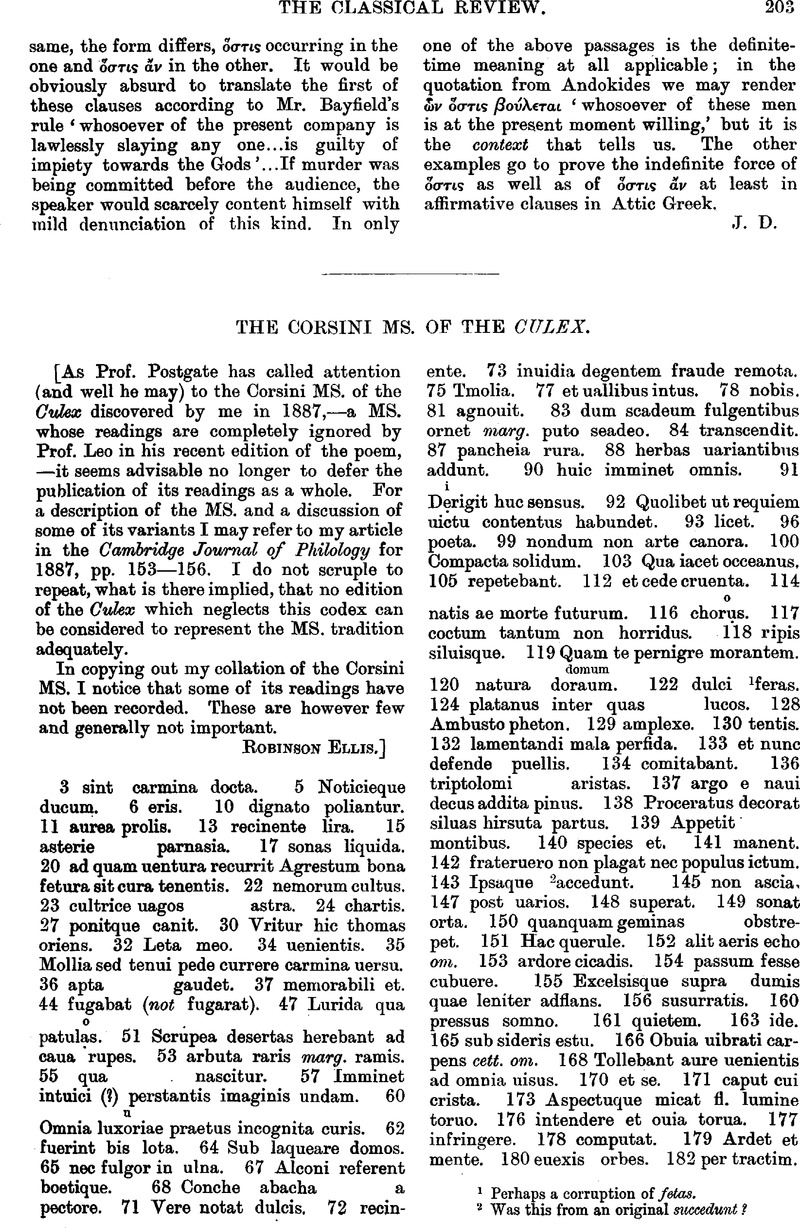No CrossRef data available.
Article contents
The Corsini MS. of the Culex
Published online by Cambridge University Press: 27 October 2009
Abstract

- Type
- Review Article
- Information
- Copyright
- Copyright © The Classical Association 1892
References
page 203 note 1 Perhaps a corruption of fetas.
page 203 note 2 Was this from an original succedunt?
page 204 note 1 Perhaps Elysium tranamus : agor delatus adundam.
page 204 note 2 Hence I would restore quoi saeua mariti In Chalcodoniis Admeti causa morata est. ‘Alcestis, for whom Admetns' cruel disease arrested its course.’ The a of causa seems to have been transferred to adineti, making adameti. Then cusa was changed to cura.
page 204 note 3 trepidante ?
page 204 note 4 Perhaps Ipsa sudisnamgue Ida parens feritatis et ipsa.
page 204 note 5 Perhaps flammaque cremante.
page 204 note 6 Read atrox Laestrygone limen, ‘threshold the Laestrygon made cruel.’
page 204 note 7 So I think rather than arcis, but it is difficult to be quite certain.
page 204 note 8 Cors. is here nearer the truth than the other MSS. which have troia furenti. The right reading is Troia ruenti (Bembo).
page 204 note 9 i.e. sparsim, rightly as against the other MSS. which give pars inflcxis.
page 204 note 10 i.e. laetans (J. of Philology, xvi. p. 155).
page 204 note 11 Perhaps Ergo QVOM cansam mortis, QVOM dicere uitae.
page 204 note 12 My conjecture, Uttamen audieris, dimities omnia uentis, seems to find support in this reading of Corsini. See J. of Philology, u.s. p. 156.


